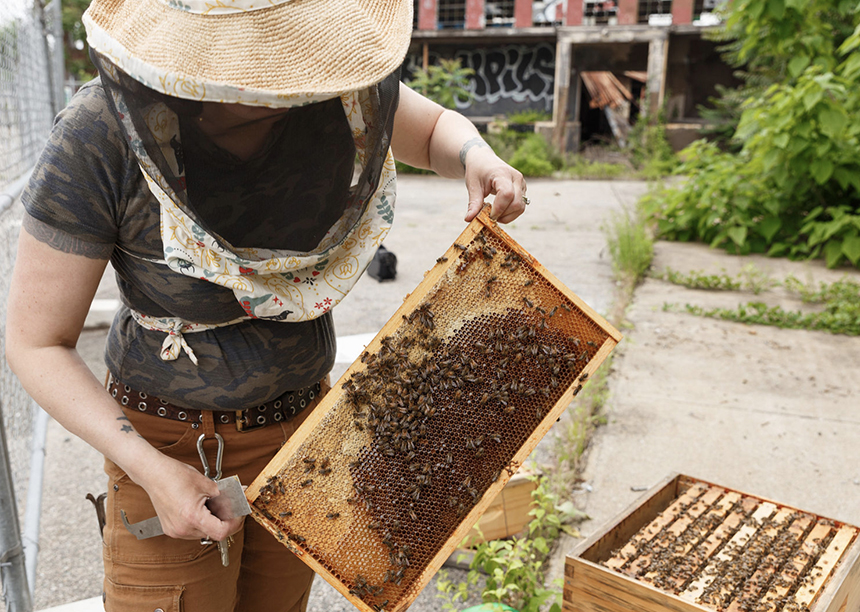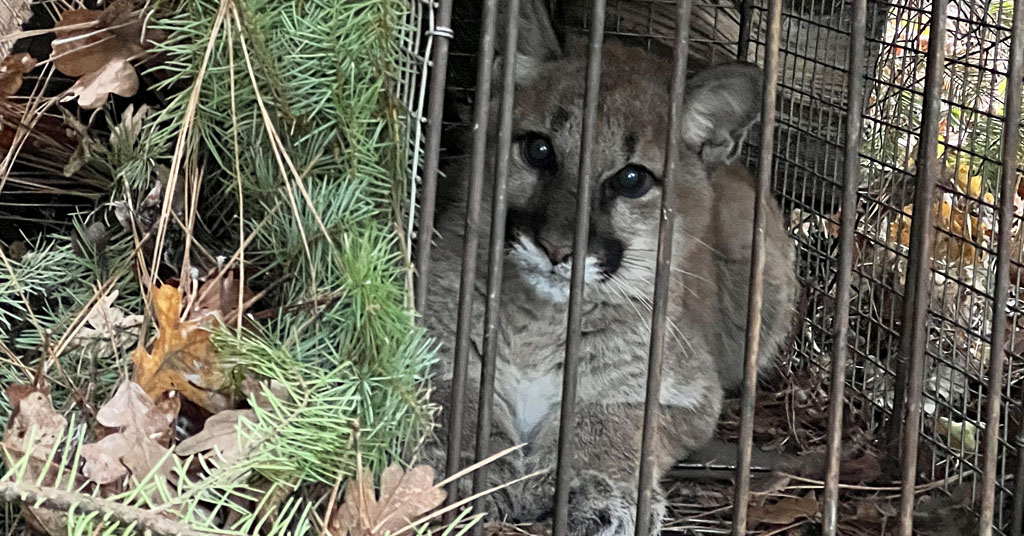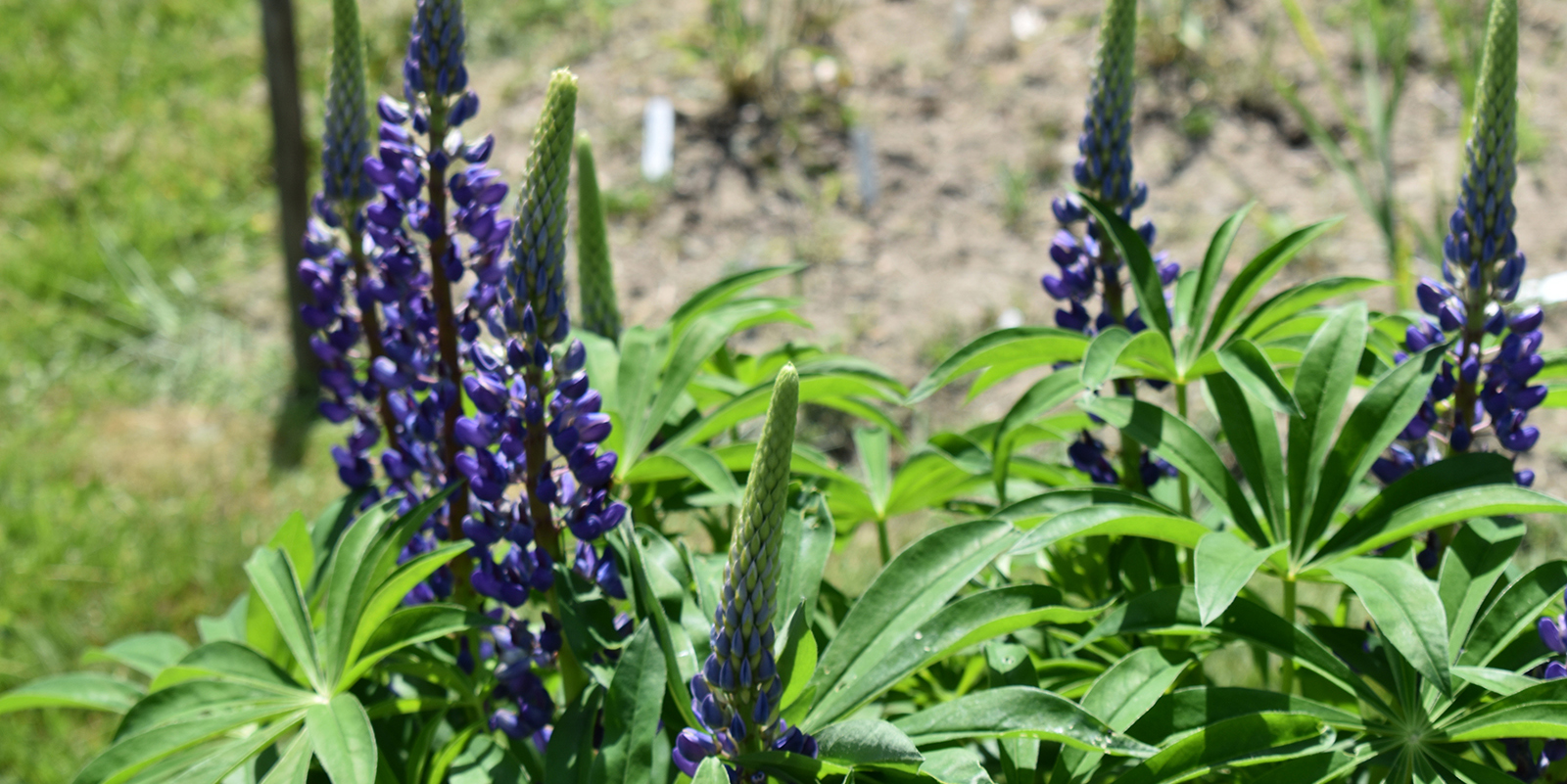Little Rhody Beekeeper Keeps Local Hives Humming
August 22, 2019
OLNEYVILLE, R.I. — Amidst the rubble of old mill buildings and cracked sidewalks, What Cheer Flower Farm is buzzing (literally) with life.
“The bees that are only on the white flowers are honeybees, and that,” said Cindy Holt, pointing to a much smaller black bug hovering over a Queen Anne’s lace lookalike, “is some sort of wasp.”
Holt is a master beekeeper, the first woman to earn the title in Rhode Island, and runs Little Rhody Beekeeping, a service that helps farms, bee lovers, and even corporations such as Exxon Mobile — Holt helped them create a pollinator garden near the East Bay bike path — wrangle their apian friends.
As we walk through the flower garden laden with delicate lisianthus and the giant drooping heads of sunflowers, she eagerly points out burly bumblebees, black-bottomed carpenter bees, busy honeybees (of course!), and some peculiar leafcutter bees that lift their bottoms up and use their torsos to collect pollen.
“I’ve always loved bugs,” said Holt, stopping to examine an insect with a patchwork of colors on its torso. “After I had kids I wanted something to do, so I started taking courses with the Rhode Island Beekeepers Association and haven’t looked back.”
Seven years and innumerable tests and courses later, Holt became a master beekeeper in 2018. Today, she manages 34 hives, including three at What Cheer Flower Farm and 17 of her own.
“I’m just gonna wear long sleeves and my face guard to start,” she said, as she gathered her smoker, hat, and a belt that jangles with beekeeper tools. “But if they are wretched,” the North Providence resident grinned, “then I’ll suit up.”
People call August the Sunday of summer, and bees aren’t exempt from end-of-season woes.
“Oh, you girls are not happy,” she said, lifting a few grates out of the first hive. Guard bees start to spill out and bounce around Holt, who mutters an “ow” and then decides to grab her white suit.
“When they start to sting me and keep sending guard bees out, that’s when I’m like it’s time to get the suit,” she said.

Quaint images of beekeepers tending their hives can be misleading, and while Holt will tell you every beekeeper loves their bees, it’s not for everyone.
“People think that to save the bees they need to have their own hive, and don’t realize how much work it is to maintain,” she said. “The best thing you can do if you want to save the bees is buy honey from your local beekeepers and have a pollinator garden.”
If you are looking to attract honeybees, Holt said to plant a patch of the same kind of flowers, since honeybees will generally pick a variety and stick to it.
“Unlike bumblebees, which hop from flower to flower randomly, honeybees, as you can see,” she said, pointing to a few collecting pollen on white lacy blooms, “stick to the same flower variety. It’s why when you get honey it’s ‘clover’ or ‘apple blossom’ and not a variety of flowers.”
After donning her suit, she returns to the hive to complete its checkup.
“Now I’m looking for signs of distress, any foreign bugs entering, pollen stores, honey stores, and if there are larvae,” she said.
Holt is also looking for her queen bee, to make sure everything is well with the proverbial heart of the hive.
“There she is,” she said, bringing a grate over and pointing out a larger bee amidst the milling masses. “She’s the one with the blue dot.”
Hive dynamics rival the plot of George R.R. Martin’s “Game of Thrones,” with male drone bees living rather miserable lives — they die after impregnating the queen, and the ones who don’t impregnate the queen are forced out of the hive come winter — and the females are divided into various roles, from collecting honey to guarding the hive. The queen oversees it all, spawns 50,000 to 60,000 descendants, and, when she runs out of fertile eggs, dies.
We zoom out of this microcosmic society when Holt puts the tray back into its slot.
“I never stop learning,” she said. “Nothing beats opening a colony to find healthy, gentle productive bees.”



